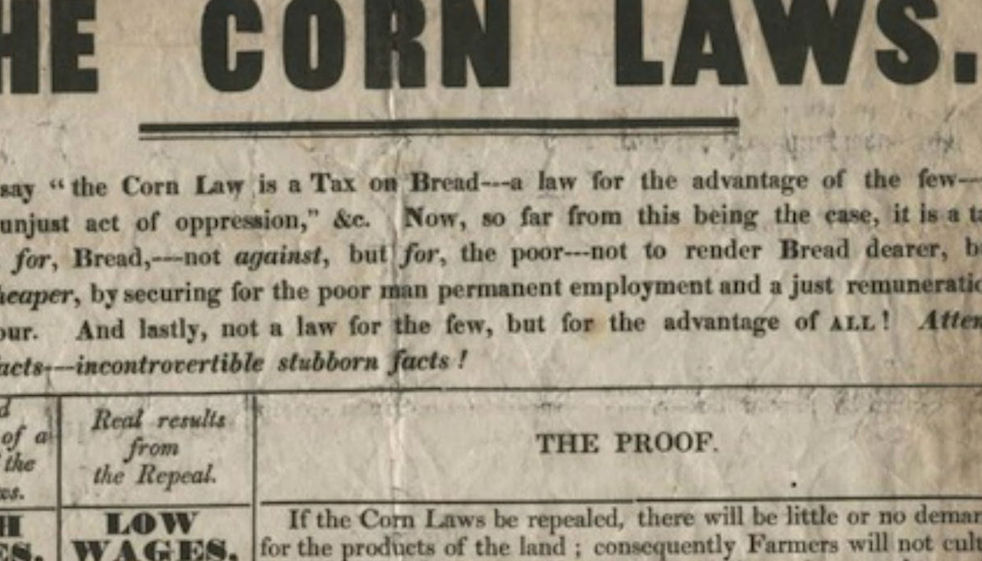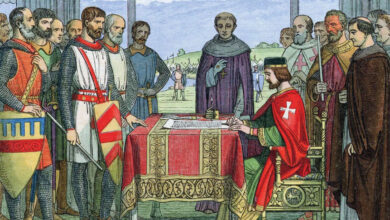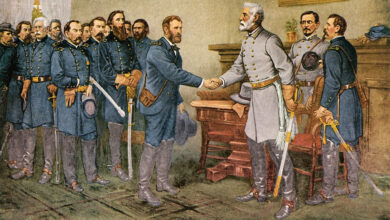
Podcast: Play in new window | Download
Profits, government protection, and international trade – who would have thought that all of this would be generated by one small grain? In the United Kingdom in the early to mid-1800s, it was necessary to protect the price of corn to defend all of the above. The Corn Laws were an effort by the Tory government to protect the crop, and other grains, from cheaper foreign corn.
In 1815, the nation of Great Britain had returned to peace after several decades of war and financial hardships. The blockades that had existed during the Napoleonic Wars were gone and a rising industrial class had started to change the world.
Grain prices had been high since 1791 due to a combination of legislation and war, and they were further impacted in 1795 due to a difficult harvest. Those high prices led to rioting by frustrated working-class citizens.
This combination of poor crop harvests and inflated prices led to a sustained food crisis during the first decade of the 19th century. But thanks to the peace that came with the end of war, corn prices started to fall.
The landowners who had representation in Parliament were curiously aligning with the new industry owners who did not have such representation. Both groups wanted the same thing – the best profits they could garner. The landowners wanted a high price for their grain, to better pad their coffers. The industrial owners wanted to pay their workers as little as possible and thus increase their own profits. However, if grain was too expensive, the workers couldn’t afford to eat, and they would go elsewhere.
At first, it would seem that the landowner class had the upper hand since with high grain prices causing high bread prices, the factory owners couldn’t afford to keep their wages as low as they would like. It was crucial that workers be able to buy their bread to fuel their busy workdays. If the prices of grains were too high, a worker would end up spending most of his meagre paycheck on bread alone.
Concerns over pricing led to the enactment of the Corn Laws, which actually covered any grain that would be ground, including and especially wheat. The actual name of the legislation was the Importation Act of 1815. These laws were crafted to allow grain farmers throughout the UK, including Ireland, to be free from worry over cheaper priced foreign grains.
The laws achieved their end goals by posting heavy duties on foreign imports, rendering them too expensive relatively speaking. The levies were applied thusly – all foreign corn had to wait to be imported until domestic crops reached 80 shillings per quarter (480 pounds).
During the time the laws were in effect, domestic grains never reached that price. Only after the laws had been repealed, in 1848, did they finally reach a price of 80 shillings before levelling off to an average of 52 shillings. A leading economist, Thomas Malthus, calculated that this would be an effective price and that anything lower would lead to a reduction in workers’ wages. That would lead to a recession because discretionary income would be decreased, and that would harm the landowners and farmers.
Once enacted, rioting was almost immediate. These laws stayed in place even during the poor crop harvest of 1816 due to the eruption of Mount Tambora the previous year and the later famines that led to the great Irish migration to the United States.
These laws were never popular. The Anti-Corn Law League was formed in Manchester on September 24, 1838 with the aim of helping the industrialists turn on the landowners. Out of this, in 1843 grew the English magazine the Economist, a publication still in existence today. In its early days, the Economist was outspoken against the Corn Laws.
The prime minister at the time, Sir Robert Peel, was targeted by the Anti-Corn Law League leader Richard Cobden in an attempt to overturn the laws. The timing was ideal for the repeal since in 1845 the Irish potato famine started, leading to Peel supporting a repeal. The opposition was spearheaded by Benjamin Disraeli and Lord George Bentinck, who lobbied for the protection of the tariffs to support the powerful landowners.
The law was eventually repealed in 1846 in a truly split vote that only passed due to MPs from the Whigs, Tories, and Radicals all agreeing. Free trade started to increase dramatically following repeal, and the British industrial revolution was off and running, with ships bringing cheap grains in from the United States and Russia. Some twenty years later, when Disraeli was Prime Minister, he demonstrated he had learned his lesson and did not try to revive the tariffs.
The workers who lost their agricultural jobs due to lower prices likely found new ones in other industries – by 1881 the 92,250 lost farming jobs were offset partially by an increase of 53,496 industrial workers. The ones who didn’t flee to other countries.
Similar laws came up again in later years, namely in 1902 when duty was set in place on any imported flour or raw grains. They were renewed in 1932 to protect British wheat against foreign imports during the Depression.
Podcast: Play in new window | Download





